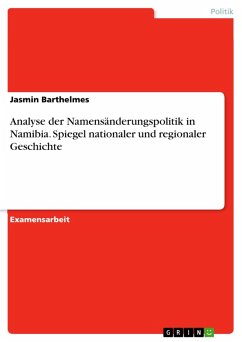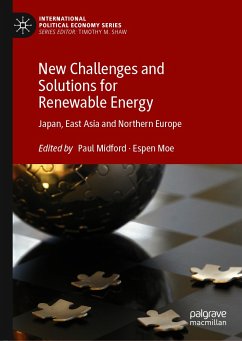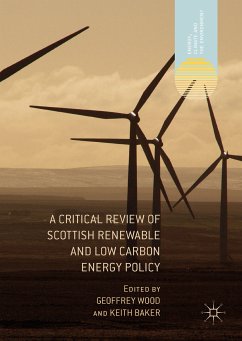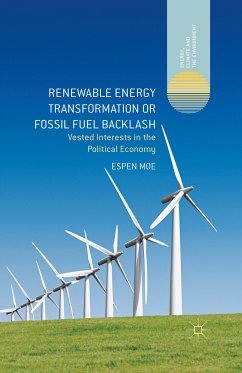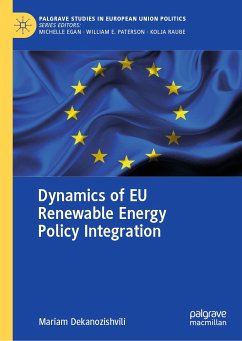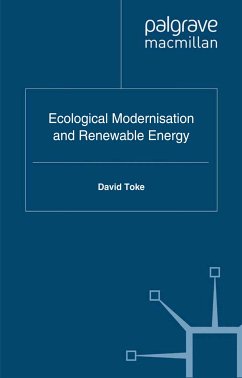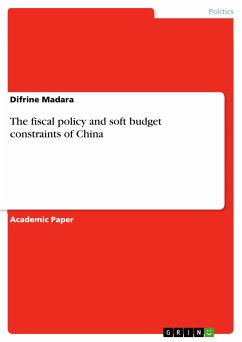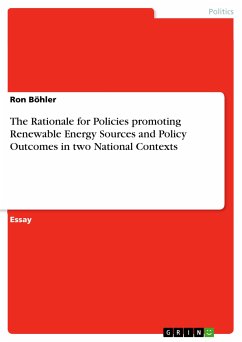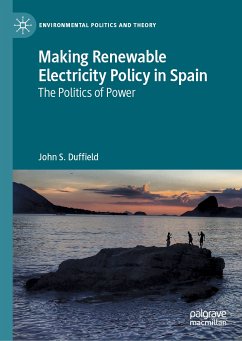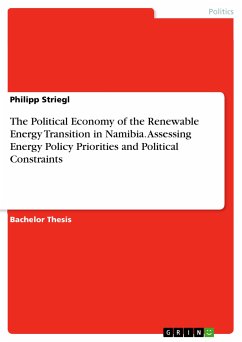
The Political Economy of the Renewable Energy Transition in Namibia. Assessing Energy Policy Priorities and Political Constraints (eBook, PDF)
Sofort per Download lieferbar
Statt: 27,95 €**
18,99 €
inkl. MwSt. und vom Verlag festgesetzt.
**Preis der gedruckten Ausgabe (Broschiertes Buch)
Alle Infos zum eBook verschenkenWeitere Ausgaben:

PAYBACK Punkte
0 °P sammeln!
Bachelor Thesis from the year 2023 in the subject Politics - Region: Africa, grade: 2,0, University of Erfurt, language: English, abstract: Reducing global reliance on fossil fuels (oil, natural gas, and coal) as sources of energy generation is a critical component of curtailing the negative impacts of climate change on societies and livelihoods. At the same time, the share of renewable energy sources (including wind, solar, hydro, and geothermal) must be increased, a process referred to as "energy transition". The already dire global warming situation also requires increasing renewable energy...
Bachelor Thesis from the year 2023 in the subject Politics - Region: Africa, grade: 2,0, University of Erfurt, language: English, abstract: Reducing global reliance on fossil fuels (oil, natural gas, and coal) as sources of energy generation is a critical component of curtailing the negative impacts of climate change on societies and livelihoods. At the same time, the share of renewable energy sources (including wind, solar, hydro, and geothermal) must be increased, a process referred to as "energy transition". The already dire global warming situation also requires increasing renewable energy generation in regions with relatively small contributions to global greenhouse gas emissions (GHG). While much research has been conducted on the political economy of energy transitions in industrialized nations, political economy aspects of energy transitions in SSA have not received much analytical attention. This thesis thus seeks to examine how energy policy priorities are directed in Namibia. As an upper-middle income country with enormous potential for domestic renewable energy generation, Namibia's energy transition still faces some considerable political and economic challenges. These challenges include a heavy reliance on energy imports and concerns around energy security. To demonstrate energy policy priorities by the Namibian government, I performed a Qualitative Content Analysis (QCA) of strategic energy policy documents and speeches issued by the Namibian government. The analysis shows that energy security and reaching universal energy access constitute the main concerns of the Namibian government. It also suggests that fossil fuel utilization and increased renewable energy generation as policy priorities are not viewed as conflicting.
Dieser Download kann aus rechtlichen Gründen nur mit Rechnungsadresse in A, B, BG, CY, CZ, D, DK, EW, E, FIN, F, GR, HR, H, IRL, I, LT, L, LR, M, NL, PL, P, R, S, SLO, SK ausgeliefert werden.




